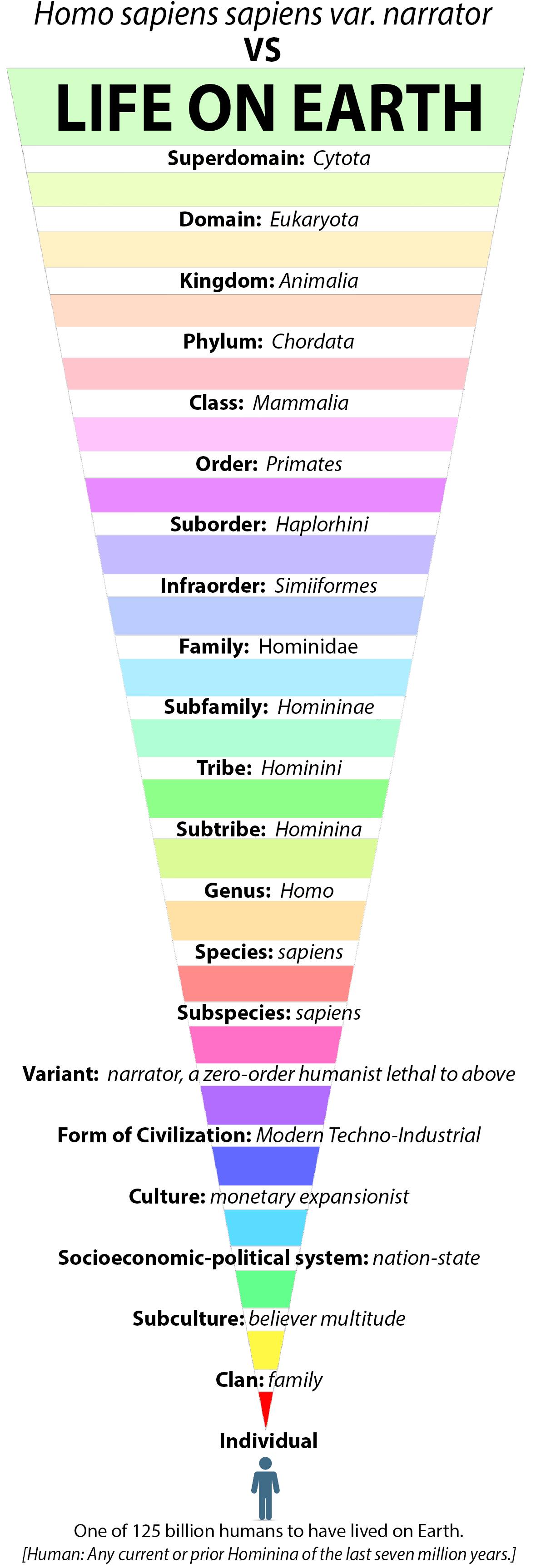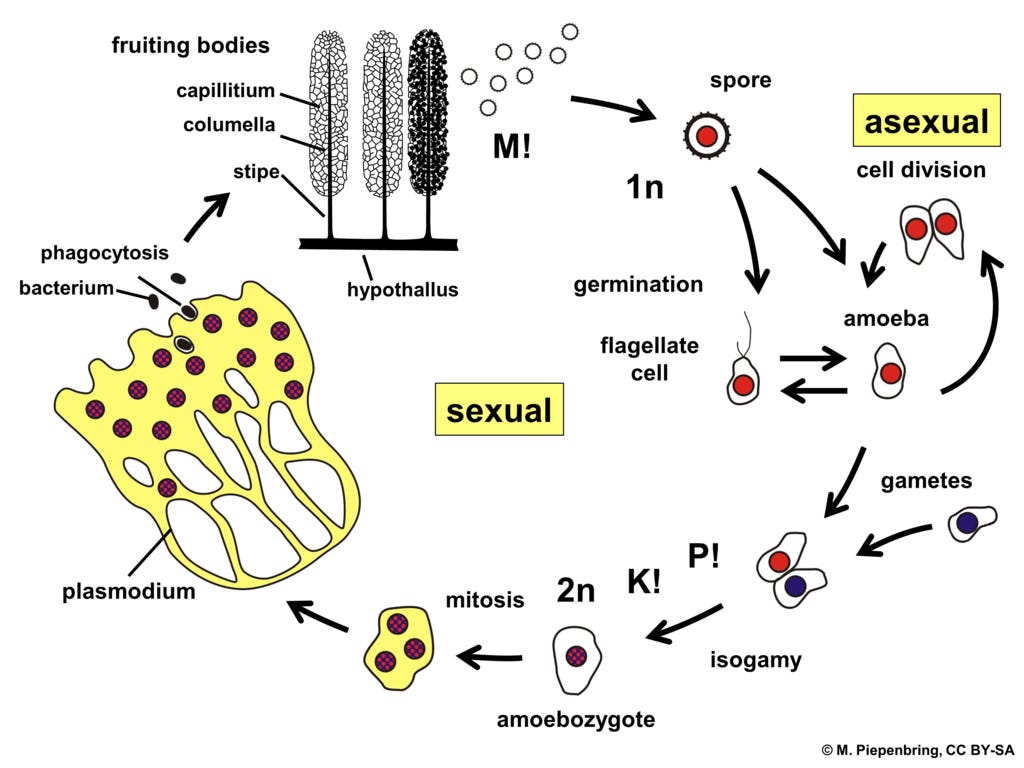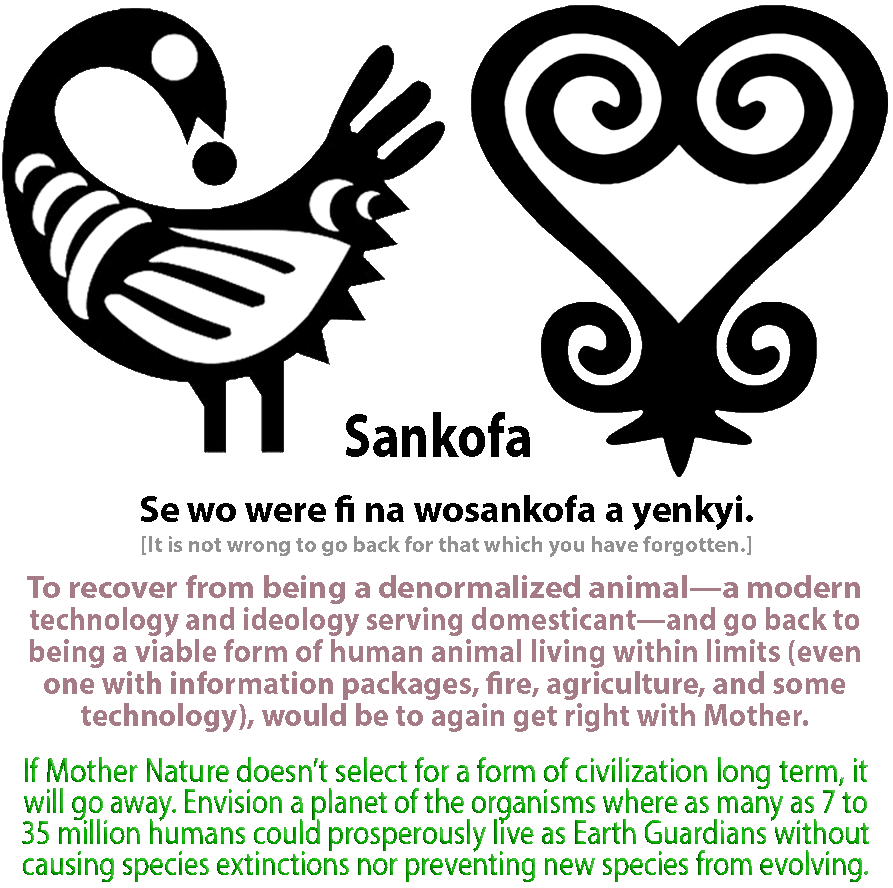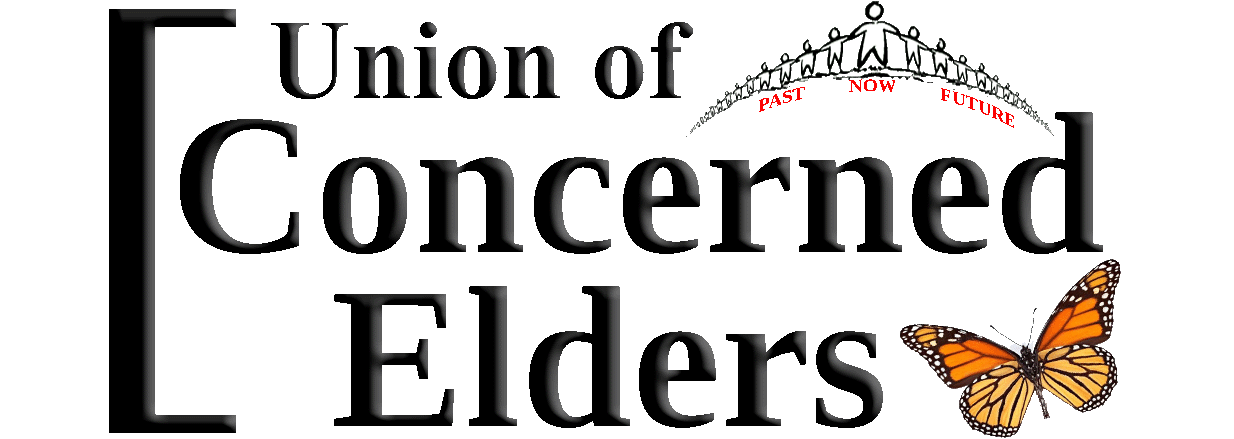So, What Can I Do?
18. Our human predicament
Our human predicament being such as it may be, what is a good ape to do?
That’s what I want to know
So spend 56 years with a focus on the human condition — one’s own, the currently alive 8.2 billion, and the maybe 125 billion humans (homininans) who have ever lived for context, and then there are the some unknowable number yet to live under conditions I cannot know of — or even know how many human generations may yet come to persist — countable in 1 digit (25-225 years?), 2 digits (up to 2,475 years), 3 digits, more digits?.
To have even the slightest understanding of humans, of their last six million years on Earth apart from the lives of other primates since the Late Cretaceous Period, would be context blind and therefore certainly wrong.
And primates couldn’t be remotely understood without viewing them within the context of 225 million years of K-selected mammalian evolution. And what of 81,000 living species of fellow chordates? And what of those who are extinct who made the 81k what we are? And did we have no ancestors before 539 million years ago that mattered?
If our first animal ancestor didn’t leave clear fossil evidence, forcing guesses of their first appearance at 789 million to 800 million years ago, were they any less alive or more alive than us?
And how could human sexuality be remotely understood apart from the context of the last 2 billion years of our ancestors doing it? Considering our sources of information (modern humans), how could we imagine we could know the first thing about the whys of doing it?
Eukaryote ancestors were even more inconsiderate than our animal ancestors, provoking modern humans to wonder when they evolved (somewhere between 1.8 and 2.7 billion years ago, likely). Worse, we moderns are so ignorant of our eukaryote brothers that we don’t even know how many living species of them there are (8.7 million, with a margin of error of ±1.3 million, going extinct about 8 thousand times faster than pre-modern human baseline rate). How many are there, despite the terraforming of our one species to make Earth uninhabitable to posterity and many current lifeforms?
And will the Anthropocene mass extinction exceed that of the first mass extinction event — the Great Oxygenation Event that killed most of the anaerobes, caused by oxygen polluting cyanobacteria 3.5 billion years ago? Will modern humans be the cause of the last mass extinction event on Earth?
Presupposing that Nature (the nature of things, the world system) determines what persists long term suggests endeavoring to listen to the still small voice of six million years of K-selected culture and biology that the modern prattle of meme-infested minds (and the cogito ergo sum voice of certitude in our head) drowns out.
What the plants, animals, and slime molds (and tardigrades et al.) who persist have to say, the prudent ape would do well to listen to. To think is to listen, and to listen is to do what one who listens is told to do by the nature of things, in all recognition of necessity (“freedom is the recognition of necessity.” — Hegel).
Much listening is encoded in our DNA. Stepping over a precipice is to avoid — ‘pull back your outstretched foot’, sayest the amygdala — no PFC (prefrontal cortex) thinking required. But we have no evolved knowledge of the lethality of modern life, and so our PFCs need to endeavor to listen and learn (except from most humans).
To listen (as primary source) to other humans (especially hallowed experts, authorities) is lethal. Every human claim should be heard to begin, “Nature seems to be saying….” And if Nature (the system) seems to concur, forget the raft of words that may have directed your wabbling gaze towards the nature of things (while listening for dissonant data).
“Science is the belief in the ignorance of experts. When someone says ‘science teaches such and such’, he is using the word incorrectly. Science doesn’t teach it; experience teaches it.” — Richard Feynman (The Pleasure of Finding Things Out, p.187)
There is data. And after some decades of taking in myriad data, of observational, computational, and reasoned inquiry, of vetting sources and interpreting inputs, there is systemic intuition — always fallible and to be questioned, but intuition comes to the unknowing (and thereby prepared) mind.
Only Nature is a source (except in textual scholarship or abstract math/logic), the nature of things who has all the answers. So what is your question? What other humans who endeavor to listen to what Nature (whether poet, sage, experimentalist, or naturalist) says is of secondary interest. If what they say rings true, it is the voice of Nature speaking softly, perhaps too little heard or understood, so the dance goes on, except within the believing mind immobilized by certainty.
“There is yet one leverage point that is even higher than changing a paradigm. That is to keep oneself unattached in the arena of paradigms, to stay flexible, to realize that NO paradigm is “true,” that every one, including the one that sweetly shapes your own worldview, is a tremendously limited understanding of an immense and amazing universe that is far beyond human comprehension. It is to “get” at a gut level the paradigm that there are paradigms, and to see that that itself is a paradigm, and to regard that whole realization as devastatingly funny. It is to let go into Not Knowing, into what the Buddhists call enlightenment.” — Donella Meadows 1999
What to do depends on what you are and where you are in space and time. If you are a slime mold in single cell mode, you blob about to consume bacteria, spores, and avoid threats. When food is depleted, you join a swarm, a multicellular slug which crawls to an open lit place and grows into a fruiting body.
Maybe you will become a spore, or form part of the stock that holds the spores up into the air for dispersal. Whether “you” die as part of a stalk or form a spore that could be born again is not what matters — all die that the species persists. They also serve who do what works to persist long term for maybe an epoch or so (before going extinct or evolving into a new species).
Perhaps you are a plasmodial slime mold, or were one a billion years ago. From a spore, under viable for growth conditions (years or decades may pass), you move by developing flagella or blob about if there is not enough water to flagellate in (such a clever eukaryote).
If feeding well, you may divide to become two, or have sex with an appropriate mating type to become a diploid zygote. Through mitosis you become a multinucleated plasmodium through multiple nuclear divisions without further cell division (the one cell gets bigger).
As a small, non-veined proto-plasmodia you may have between 8–100 nuclei, while in a food-rich location you may become large (surface area of up to 5.5 sq m, 60 sq ft), a veined meshworks having between 100 and 10 million nuclei, kind of like multinucleated humans in towns to cities.
But what you’ve been doing as a slime mold has been selected to work for a billion years. Practice (at listening to Nature) makes for persistence. Human cities are notable for producing ruins in almost no time at all (i.e. <10k years, often in even less time — multiple cities can be build on the same geographical location giving an illusion of continuity, e.g. Corinth).
THE DOING
(by not doing — by dancing with the system)
So, what’s a would-be good ape (whose ancestors were doing pretty well considering as evolving animals before about 75k years ago or prior to being assimilated by the metastatic ones) to do?
NOW THAT’S WHAT I REALLY WANT TO KNOW:
The Eightfold Path
The condition of ignorance (of being educated instead of schooled), of wanting to know (rather than believe) is the beginning of inquiry (wisdom as outcome, not goal or acquisition).
Heart-mind; affect-effect; love and understanding (that which can listen to Nature) is the means of inquiry.
To love is to understand (to understand pathology is compassion). [There is suffering.]
To love and understand surpasses belief; to love-understand the what-is is the doing, is the outcome, the not-doing out of which everything is done.
To understand one’s non-viable condition is to be delivered from it (extinction is one form of deliverance, renormalizing is another).
The condition of being delivered from yourself as a chooser having/making choices is the precondition for informed best-guess choiceless (wei wu) doing. [There is a cause of suffering.]
Belief in modernity, sovereignty, supremacy, exceptionalism, mastery, dominionism…, ends; belief can end and with it suffering. [There is an end to suffering.]
To renormalize is humanity’s future. [There is a path to end suffering.]
The Condition of Being Delivered
The condition of being delivered cannot be as believed in. Nor can it be chosen. No one chose to be a denormalized homininan.
The condition of a metastatic pancreatic cell involves a change in form, a mutation in form, e.g. from a K-selected animal/cell to an invasive r-selected animal/cell. Reversion to a viable form would involve the ending of the non-viable short-term metastatic form, whether by extinction or by reversion mutation. Either way, the metastatic condition ends (that’s what ‘non-viable’ or ‘unsustainable’ means).
The condition of temporal blindness precludes renormalization. The loss of foresight intelligence, secondary to acquired ideology, may have been the mutation that enabled K-selected humans to become r-selected short-termers whose meme-infested minds can deny foreseeable (to the time-sighted) outcomes.
A reversion mutation is to know (understand) thyself as denormalized non-evolvable animal, as an Anthropocene enthusiast presiding over a mass extinction event.
Without thinking good or bad, understand. If not delivered from your enthusiasm, you don’t understand and continued endeavor to understand is the doing.
If, like most of Ursula K. Le Guin’s characters in The Ones Who Walk Away From Omelas, you have not walked away, it is because you haven’t reversioned yet (haven’t understood), you have not realized that it is not wrong to go back for that which you, or an ancestor of 75k years ago, have forgotten.
Note: ‘Walking away’ is a physically understandable metaphor for a cultural/memetic departing from the non-viable form of civilization (one we are all products of and serve) to what is wholly unknowable at the time of walking away. The choiceless walking away into the unknown/unknowable comes first.
Then comes the pathless land. Demanding to know, which is the nature of the believing mind, is the fly-bottle we will fail to persist within. Those who could choose to not walk away from Omelas didn’t, won’t, can’t. Understand and as willful agent (a self) die. Imagine there’s no modernity. Why do we need to try?
For some, there are beliefs that surpass understanding. For others, there is understanding which surpasses abstract systems of belief. Neither pathway may prove viable. The world system alone determines what is selected for and against to persist. Most modern humans (true believers) will double down on ideology and technology, which has worked for 75k years to take a planet.
For some, whether by genome, epigenome, and/or by acculturation, there is a need to believe. A need to understand your condition of needing to believe has fideism as the endpoint. I am a fideist. Individuals can but iterate towards renormalizing and pay their progress forward (to posterity). In 8–12 generations, significant progress per capita should be apparent.
If you are an ecolate (systems literate) elder, consider contributing to a warning to posterity via the UoCE:






